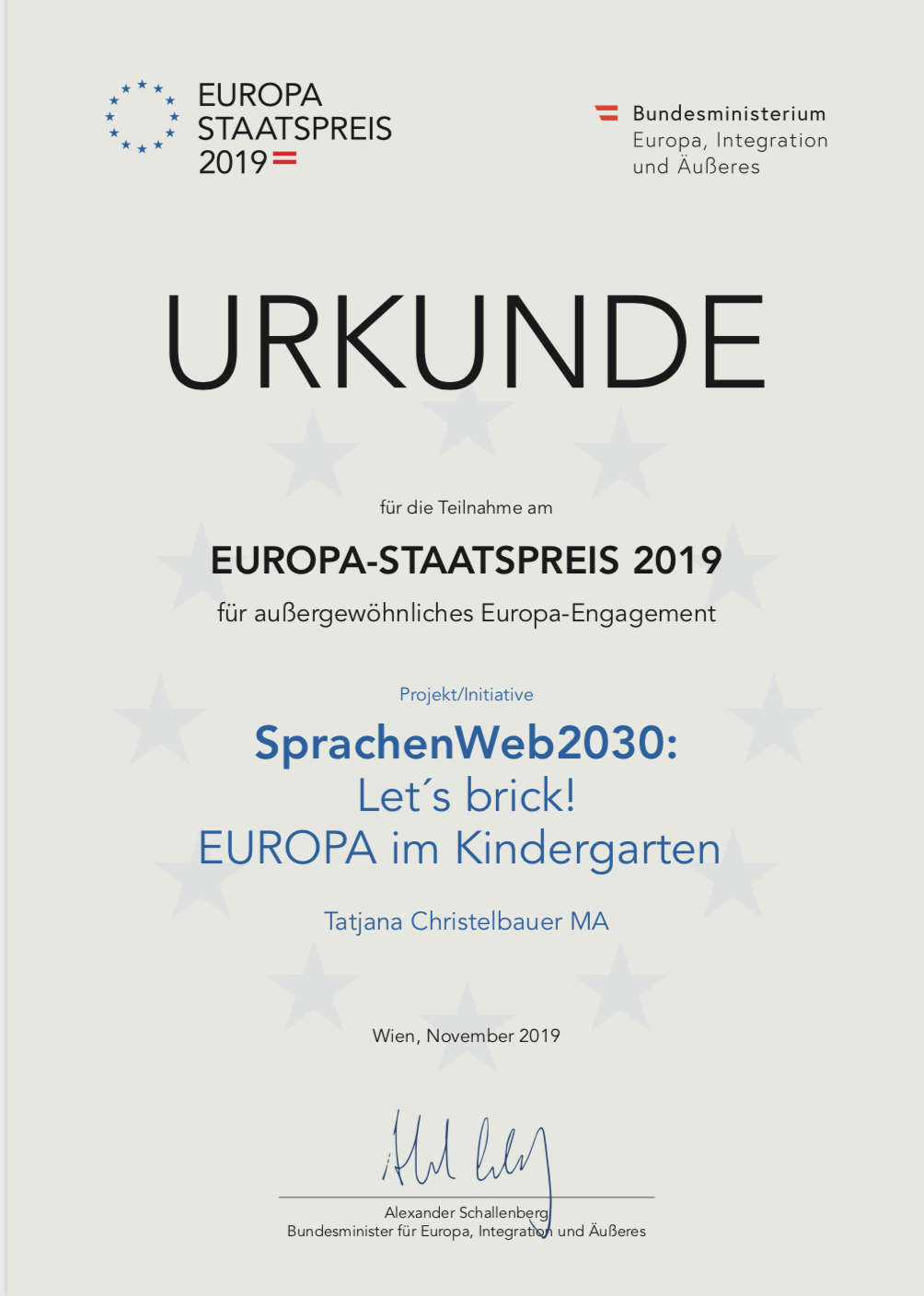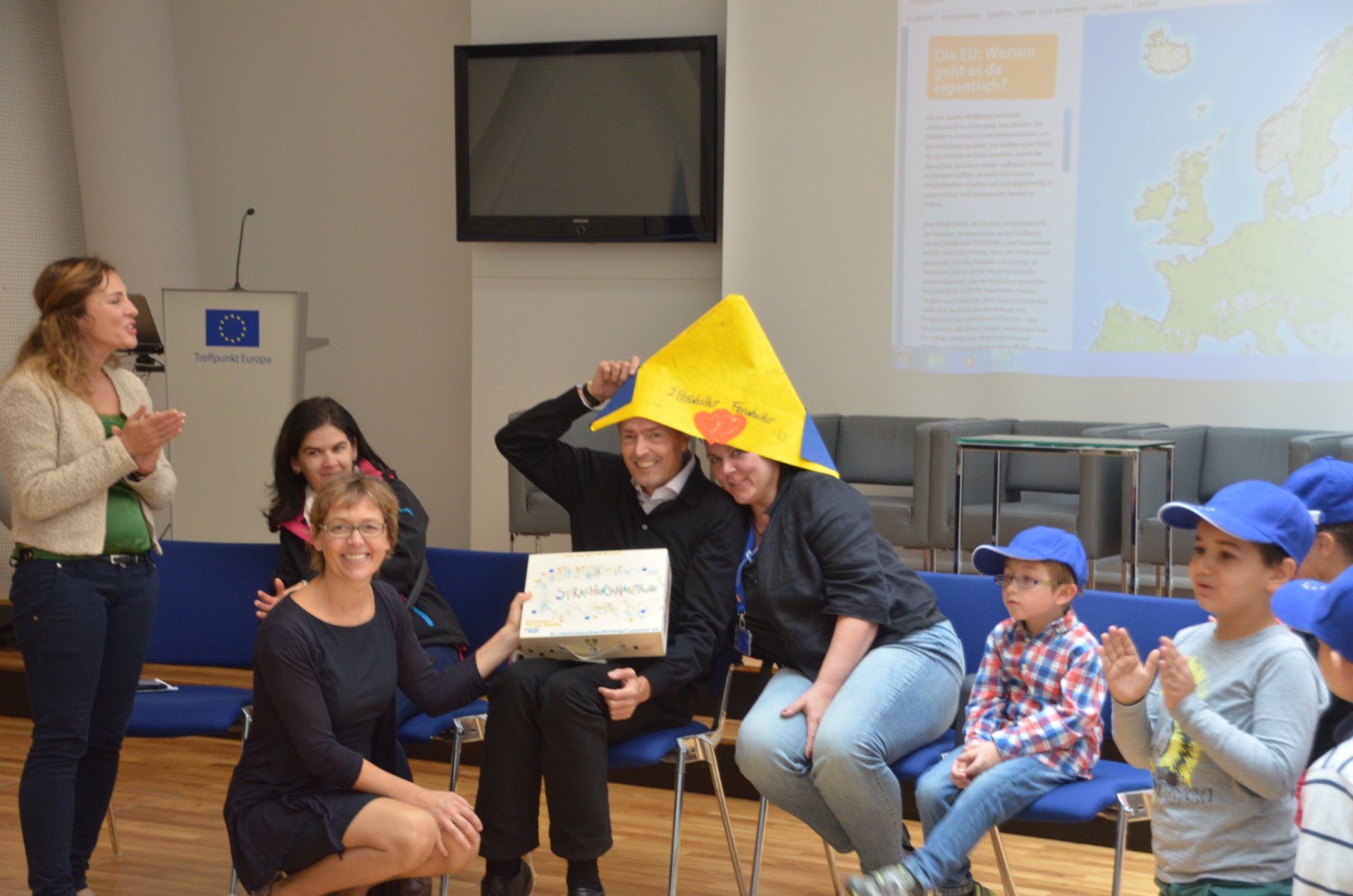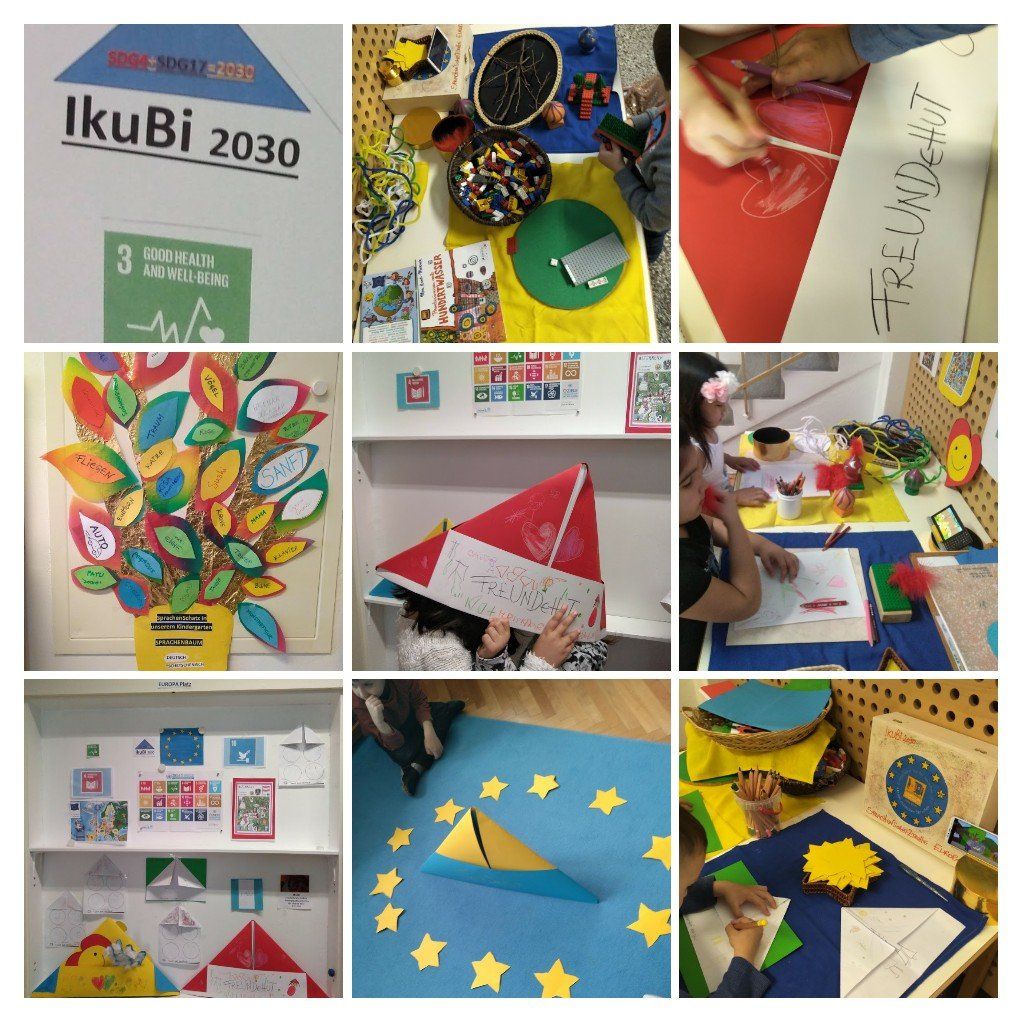^
friendshat
educational politics of friendship
under one sky under one hat
with 17 UN SDGs it becomes easier to do
friends hat
a creation from the 1990s with and for kindergarten children and teams
to get to know each other, to get closer together,
getting back together after a fight, shaking hands, looking into each other's eyes, listening, turning in circles, dancing, ...
With the 17 Sustainabke Goals of the UN Agenda2030 (17 UN SDGs), it becomes a lot easier to promote an educational policy of friendship between diverse societies and communities by promoting values and goals in the spirit of charity, equality, equal rights and the responsibility of all individuals and together, life today, to master without harm for future generations,
to be mindful of the natural and social environment,
to deal carefully with all resources, ranging from energy, food, time, space, to intellectual and cultural goods,
use of language resources , learning and practicing linguistic and cultural hospitality within diverse communities.
Sustainable education policy can already be applied from kindergarten age
by promoting eco-social mindfulness, help us to be more successful,
as one, as one, with many ones
to dance under a hat
to live and shape diverse realities in relation to each other
and stay in love
like the Austrian reform pedagogue Marta Schorl in her socio-pedagogical concept and the method of subsequent leadership humanistic approaches 21st century expressed.
Education for Sustainable Development ESD offers a wide range of scientific-theoretical and didactic-methodical teaching and learning material.
After UNESCO[1], the term Education for Sustainable Development (ESD) is understood to mean a lifelong learning process that takes into account holistic and transformative education that takes into account learning content and outcomes, pedagogy and the learning environment.
“The aim is to acquire knowledge and skills that are necessary for the promotion and implementation of sustainable development. ESD should enable every individual to understand the impact of their own actions on the world and to make responsible decisions.”[2]
FriendsHut was developed within 28 years of my continuous work in the field of intercultural education. All the learning materials, case studies, learning methods and projects were presented in a brochure as a learning model in 2018 for my 25th anniversary at the Office of the Lower Austrian Provincial Government, Department of Kindergartens and Schools IkuBi2030
[1]
Source: https://www.unesco.at/bildung/bildung-2030/bildung-fuer-nachhaltige-entwicklung
[2] Source: https://www.bne-portal.de/bne/de/einstieg/einstieg_node.html





Friendshatwith approaches from a gender-theoretical perspective:Equally just, equally responsible
IkuBi2030 teaches:
social roles should be independent of gender, ethnicity, nationality and other categories
however according to talent, interest, competence,
be developed and lived.
Equal opportunities can and should be promoted with the inclusion of approaches from feminist education and from a gender theoretical perspective in the earliest educational programs.
Linguistic diversity was and is often perceived as a communication barrier,
cultural diversity within social communities, especially in educational institutions, makes social integration more difficult.
Nevertheless, in the last 20 years in the 21st century, new insights have been gained into how different experiences, lifestyles and interests can be more easily "reconciled" on an interpersonal level.
For this purpose, the paradigm shift in the field of cultural diplomacy of national states - from nationally shaped transmission of values to internationally proclaimed values, which are in the UN Human Rights Convention, EU documents and ultimately anchored in the UN Agenda 2030, contributed to strengthening the sense of belonging of diverse nations, communities and individuals in a broader framework, without losing the national tradition and culture-shaped authenticity.
Diversity in Austria, as well as in Europe and worldwide, was viewed from new perspectives,
cultural and linguistic diversity increased as Resources for designing pluralistic, democratic societies integrated into the new educational policy and other concepts.
My approach to intercultural education was shaped by personal experiences in the 1990s when I moved to Austria from the former Yugoslavia. I learned German language part-time, in the field of my practice. As an enthusiastic linguist and artist, it was not difficult for me to find my way into a new world of life and language, to develop a love for this language and the language world in Austria.
The friendships and in particular the hospitality of my colleagues and acquaintances have contributed to strengthening the sense of belonging, to participate as co-existence, to live together, to help shape it.
In my blog article I have written some personal thoughts on this.
language festivals in kindergartens, schools, youth centers, the ParlaMINT sessions with FreundeHut and feather salute were realized in Austria and also in cooperation with Austrian cultural forums and libraries abroad: LanguagesWeb2030
My wor(l)thingmethod with talk sessions and children's radio format was honored with a certificate by the Austrian Language Competence Center in Graz in 2014 and. included in the language innovation network SPIN.
Since 2019, the approaches and learning methods of the I kuBi2030- learning model in a cooperation projectt in Maragoli, Kenya with ADEPS Org. and with Noah's Ark Academy at virtual ZOOM art-based learning sessions for learners and teachers
If you are interested in seminars, workshops, projects with FreundHut and other approaches of the IkuBi2030 learning model. I would like to thank you for contacting me:








